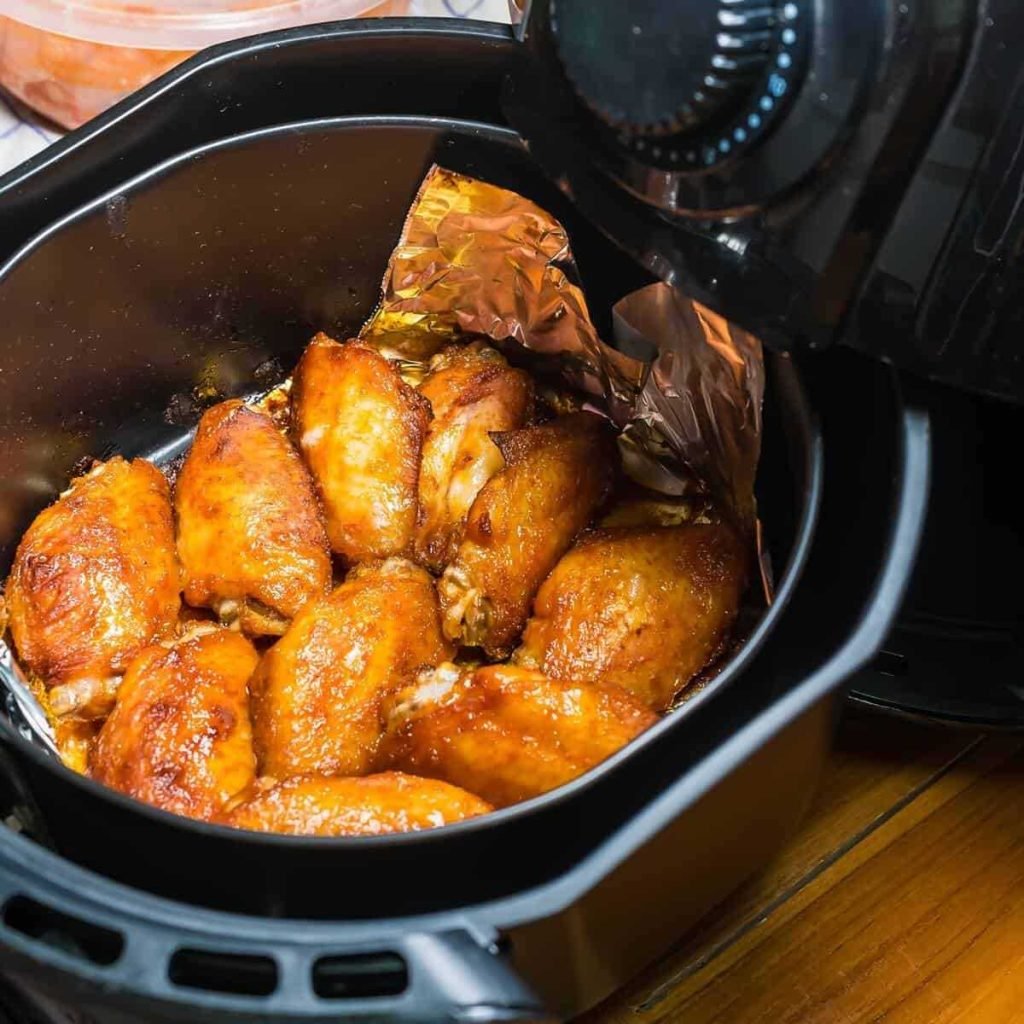Air fryers have become a popular kitchen gadget for quick and healthier meals, but they aren’t perfect. The main disadvantages include limited capacity, which may not suit large families, and the potential for uneven cooking. Additionally, some models can be quite expensive and may require frequent maintenance. While they promise less oil and healthier fried foods, they often can’t completely replace traditional frying or baking methods in terms of taste and texture.
In short, air fryers are convenient but come with drawbacks like small size, cost, and occasional cooking inconsistencies. Understanding these limitations helps you decide if an air fryer fits your cooking style and household needs.
Using an air fryer can be enticing because of its promise of crispy, delicious food with less oil, but it’s important to be aware of some drawbacks before making a purchase. While it’s a time-saver and generally healthier, the device often struggles with larger portions, leading to longer cooking times when preparing family-sized meals. The price point can also be a barrier, especially for high-end models that offer more features. Moreover, some users find that the texture of air-fried foods doesn’t fully replicate traditional frying or baking, which can be disappointing. Maintenance and cleaning can also be hassle, as grease and food particles tend to build up. All these disadvantages mean that while an air fryer is a handy gadget, it’s not a one-size-fits-all solution for every kitchen.
What are the disadvantages of air fryers?
Limited Cooking Capacity
Air fryers generally come in smaller sizes compared to traditional ovens or deep fryers. This means you may not be able to cook large meals or multiple servings at once, which can be inconvenient for bigger families or when hosting gatherings. If you need to prepare food for many people, you might have to do multiple batches, increasing cooking time and effort.
Uneven Cooking Results
One common issue with air fryers is uneven heat distribution. Certain areas inside the basket may cook faster than others, leading to inconsistent results. This can result in some foods being overcooked while others remain underdone, especially if you do not shake or turn the food during cooking.
High Energy Consumption
Although air fryers use less oil, they can consume a significant amount of electricity. Their powerful fans and heating elements run continuously during cooking, which might lead to higher energy bills. Over time, this increased energy use can add up, especially if you use your air fryer often.
Potentially Expensive
Good quality air fryers tend to be more expensive than basic countertop appliances. If you are on a tight budget, investing in a durable and efficient air fryer might seem costly. Cheaper models may lack the features and safety standards needed for long-term use, possibly leading to additional expenses.
Learning Curve for New Users
Using an air fryer effectively might require some practice. New users may need time to understand optimal cooking times, temperatures, and food placement. Mistakes like overcrowding or incorrect temperature settings can result in less-than-perfect dishes and frustration.
Health Concerns Related to Acrylamide Formation
Cooking certain starchy foods at high temperatures in an air fryer can create chemicals like acrylamide, which may be harmful if consumed in large quantities. While occasional use is unlikely to cause harm, regular consumption of foods cooked at high heat might pose health risks. It’s wise to use the appliance carefully and avoid overcooking.
Limited Versatility
While air fryers excel at frying, baking, and grilling, they are not as versatile as traditional ovens or stovetops. Some recipes, especially those requiring precise temperature control or large pans, are difficult or impossible to prepare in an air fryer. This limits your cooking options and could mean needing additional appliances.
Possible Odors and Smoke
Cooking certain foods in an air fryer can produce strong odors or smoke, especially if the appliance is not cleaned regularly. Grease or food residue buildup can ignite or cause smoke, which might be unpleasant and may trigger smoke alarms. Proper maintenance and cleaning are essential to prevent this issue.
Environmental Concerns
Air fryers require electricity, and depending on your energy source, this may have an environmental impact. Additionally, some models contain non-stick coatings that may emit fumes if scratched or overheated. Proper disposal of old or damaged air fryers is also necessary to reduce environmental harm.
Noise Levels During Operation
The fan inside an air fryer can be quite loud, especially during longer cooking sessions. This noise may be disruptive or bothersome in quiet environments or for people sensitive to noise. Choosing a quieter model can help, but it might come at a higher cost.
Accessories and Cleaning Challenges
Many air fryers require extra accessories such as trays, racks, or pans, which can be challenging to clean. Residue buildup in small crevices or on accessories can lead to odors or affect food safety. Regular, thorough cleaning is necessary but can be time-consuming.
Comparison with Traditional Cooking Methods
Although air fryers are marketed as healthier alternatives to deep frying, they may not always produce results comparable to traditional frying or baking. Texture and flavor can differ, which may disappoint those seeking authentic fried foods. Sometimes, traditional methods still hold a culinary edge for specific dishes.
Safety Precautions Needed
Despite being user-friendly, air fryers require careful handling. Hot surfaces and moving parts pose burn risks, especially for children. Users must follow safety instructions diligently to prevent accidents, which can be a concern for households with young kids.
Limited Freshness and Quality of Food
Foods cooked in an air fryer can sometimes lack the crispiness or flavor of traditionally fried foods. The rapid air circulation can dry out or alter the texture of certain foods, leading to less satisfying results. Adjustments in cooking time and temperature are needed to improve quality.
Impact on Food Budget
Using an air fryer can increase your grocery bill if you frequently cook pre-packaged or processed foods designed for air frying. Additionally, maintaining the appliance with quality cleaning products adds to ongoing costs. Planning balanced meals is essential to avoid unnecessary spending.
Summary of Drawbacks
While air fryers are convenient and often healthier than deep fryers, they come with notable disadvantages like limited capacity, uneven cooking, and higher costs. They are not a perfect replacement for all traditional cooking methods and require proper care and understanding to maximize their benefits.
By thoroughly understanding these disadvantages, you can make an informed decision about whether an air fryer suits your lifestyle and cooking needs. It’s important to weigh these factors against the benefits to determine if this appliance is right for you.
Are Air Fryers Safe?
Frequently Asked Questions
What are the potential health concerns associated with using air fryers?
While air fryers are often considered a healthier alternative to deep frying, they can produce certain compounds, such as acrylamide, when cooking starchy foods at high temperatures. Overuse or prolonged cooking at high heat may also lead to the formation of unhealthy fats or residues that could affect your health. It’s important to use the appliance properly and maintain cleanliness to minimize these risks.
How does the cost of operating an air fryer compare to other kitchen appliances?
Air fryers typically consume less energy than traditional ovens or deep fryers, which can lead to lower electricity bills. However, they might still add to your energy expenses depending on usage frequency and model. Additionally, the initial purchase price can be higher than some other small appliances, and replacing parts or repairing the device over time can introduce additional costs.
What limitations do air fryers have in cooking versatility?
Although versatile for many quick dishes, air fryers may not be suitable for complex recipes that require precise temperature control or extensive preparation. Their small cooking capacity can also restrict batch sizes, making it less ideal for preparing large quantities or multiple dishes simultaneously. This can cause inconvenience for larger families or entertaining guests.
Are there any safety concerns with using air fryers regularly?
Regular use of air fryers can pose safety risks if you do not follow proper guidelines. Overcrowding the basket or handling hot components improperly might lead to burns or fires. Additionally, poor maintenance or malfunctioning parts can increase the likelihood of electrical hazards. Always operate the machine according to the manufacturer’s instructions and keep it clean to ensure safety.
What impact does an air fryer have on the texture and flavor of food compared to traditional frying?
While air fryers produce crispy textures similar to frying, some users notice that certain foods may lack the richness or moisture achieved through traditional methods. The flavor profile might be less intense, and certain delicate foods could become overly dry if not monitored carefully. Adjusting cooking times and temperatures can help improve results, but they might not fully replicate the taste of deep-fried dishes.
Final Thoughts
Les friteuses à air présentent plusieurs inconvénients à considérer. Leur petite capacité limite la cuisson pour de grandes familles ou groupes d’amis. Elles consomment également de l’électricité, ce qui peut augmenter votre facture d’énergie. Parfois, la texture des aliments peut différer de la friture traditionnelle, ce qui déçoit certains utilisateurs.
En conclusion, what are the disadvantages of air fryers? Ces appareils peuvent ne pas répondre aux attentes de tous en termes de capacité et de résultat, ce qui limite leur utilisation au quotidien.
As an Amazon Associate, We earn from qualifying purchases. When you purchase a product through Amazon links on kitchenadvising.com, we may earn a small commission at no extra cost to you. This helps support the site and keep our content free.


